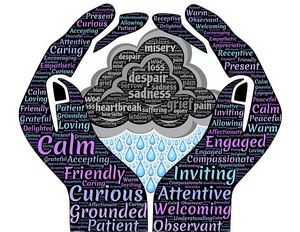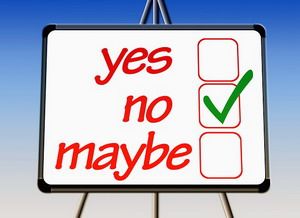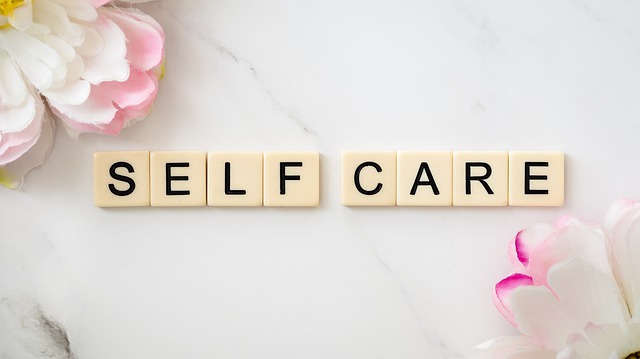
One of the challenges to being a caregiver is knowing when to switch the giving flow from caring for others to caring for yourself. Self care is essential to the health and wellbeing of the caregiver. The phrase I have used for years is “If you don’t care for yourself first, you won’t have anything to give to others.”
This is easier said than done. Those to whom you have committed to give your care don’t periodically stop needing or wanting to be cared for. They don’t create the space or time for you to take care of yourself. Caregivers do not have automatic vacations from their duties. That means they have to learn the terribly difficult ability to say “no” to those in need. Human nature is to be very aware whenever someone is projecting out cries for help. We naturally feel stressed when someone is “not ok” around us. This is because unconsciously we are all tied together for mutual survival. Our primitive threat center goes on alert whenever anyone around us broadcasts “not ok” signals, because whatever they are having trouble with could signal a threat to us as well.
 Much has been written about the suppression of the natural care giving response in people that are forced to live in crowded environments like cities. The crowding teaches people to “mind their own business” or else they might get in more trouble. The result is the natural alarm mechanism still fires, but responding to it is suppressed. This turns it into a generalized stress response in their bodies and contributes to their ill health.
Much has been written about the suppression of the natural care giving response in people that are forced to live in crowded environments like cities. The crowding teaches people to “mind their own business” or else they might get in more trouble. The result is the natural alarm mechanism still fires, but responding to it is suppressed. This turns it into a generalized stress response in their bodies and contributes to their ill health.Care givers are generally those of us that are more sensitive to the “not ok” signals others give out, combined with a belief that we can do something to make others better. We become doctors, nurses, ministers, teachers, and social workers. There is also the special category, called parents, who become sensitized specifically to their children’s cries, or demands for help. In fact in most any relationship, one person will be more the caregiver/ provider and the other will be more the receiver/ consumer. It is rare to have both people equal on this interaction – although the exchange might switch in different arenas – like one person will provide physically, while the other might provide emotionally.
 In any case, if you are in the provider role, you need to take a break every so often and provide for yourself. If you have the opportunity to actually receive from others, so much the better. We need balance in our lives to be healthy. Yes, I know from personal experience that we can convince ourselves that we are fine and don’t need anything, but it is a lie. We have simply gotten good at ignoring our internal cries for support. We become convinced that we can keep going on forever – until we crash. We may even have the completely false belief that when we need help, all those people we have been taking care of will step up to the plate and take care of us with the same selflessness we have demonstrated to them all those years. Well, that is not going to happen. We train them too well to be dependent on us and don’t train them in any of the skills they would need to even notice that we need help.
In any case, if you are in the provider role, you need to take a break every so often and provide for yourself. If you have the opportunity to actually receive from others, so much the better. We need balance in our lives to be healthy. Yes, I know from personal experience that we can convince ourselves that we are fine and don’t need anything, but it is a lie. We have simply gotten good at ignoring our internal cries for support. We become convinced that we can keep going on forever – until we crash. We may even have the completely false belief that when we need help, all those people we have been taking care of will step up to the plate and take care of us with the same selflessness we have demonstrated to them all those years. Well, that is not going to happen. We train them too well to be dependent on us and don’t train them in any of the skills they would need to even notice that we need help.That leaves us with having to stand up and create the nurturing space we need for ourselves. We have to make connections to other caregivers for our own nurturance. We have to give ourselves the time off from our care-giving obsession to do something else that heals us and supports us. We have to allow the people dependent on us to explore their own ability to meet their own needs for a bit. This can be especially scary because the dependents might discover that they don’t need us to be ok. They might develop some self-nurturing skills of their own.
 In extreme care-giving situations, like tiny babies or caring for invalids, we might have to arrange for other caregivers to come in and take over our duties. This could be a challenge to our conviction that no one could possibly do as good a job as us at taking care of “our” people. We have to face that we could lose control over the lives of those dependent on us. Although in my own experience of deep codependence years ago with my ex-wife, I had it put in my face by Susie, my secretary, that I was not in the control I thought I was. She simply said, “David, if you are in control, how come it is your wife that always gets her way?” That was a rude awareness to have to reflect upon.
In extreme care-giving situations, like tiny babies or caring for invalids, we might have to arrange for other caregivers to come in and take over our duties. This could be a challenge to our conviction that no one could possibly do as good a job as us at taking care of “our” people. We have to face that we could lose control over the lives of those dependent on us. Although in my own experience of deep codependence years ago with my ex-wife, I had it put in my face by Susie, my secretary, that I was not in the control I thought I was. She simply said, “David, if you are in control, how come it is your wife that always gets her way?” That was a rude awareness to have to reflect upon.Caregiving is a service to life, not a means to feel in control. As a service, it is given out in healthy amounts in ways that mutually supports both the giver and the receiver. Life is meant to be a win-win experience. But in the realm of care giving, the giver has to claim their own win by giving themselves the freedom to also be supported. Sacrifice without a return is an unsustainable situation. All outflow and no inflow quickly results in depletion. Depletion is hard to assess because usually you don’t know you are getting depleted until you are already depleted.
 I have recently experienced this very thing – depletion. Taking care of Ellen after her stroke meant taking on the duties of both of us, plus all the extra burden of caregiving Ellen needed because of her limitations from her stroke. For several months I kept up most of the multiple jobs I was trying to cover and believed I could keep it up forever as needed. Well about a month ago I simply ran out of steam. I just didn’t have the energy to do all the things that just had to be done. It took a while for me to figure out that I had reached depletion. I tried to blame it on bad diet or lack of exercise, as I had been sacrificing my normal self care due to time constraints. Forcing myself back onto better self care did not return my energy. My normally placid temperament got edgy and my motivation dropped. Finally I had to say enough is enough and start saying “no.” I had to carve out some quiet time for myself instead of constantly attending to Ellen’s needs. Some of the household chores would just have to wait. I even started taking Friday afternoons off from work so I could get a head start on the weekend chores. Up to that point I was working constantly all weekend and not finishing up until around 8 p.m. Sunday night.
I have recently experienced this very thing – depletion. Taking care of Ellen after her stroke meant taking on the duties of both of us, plus all the extra burden of caregiving Ellen needed because of her limitations from her stroke. For several months I kept up most of the multiple jobs I was trying to cover and believed I could keep it up forever as needed. Well about a month ago I simply ran out of steam. I just didn’t have the energy to do all the things that just had to be done. It took a while for me to figure out that I had reached depletion. I tried to blame it on bad diet or lack of exercise, as I had been sacrificing my normal self care due to time constraints. Forcing myself back onto better self care did not return my energy. My normally placid temperament got edgy and my motivation dropped. Finally I had to say enough is enough and start saying “no.” I had to carve out some quiet time for myself instead of constantly attending to Ellen’s needs. Some of the household chores would just have to wait. I even started taking Friday afternoons off from work so I could get a head start on the weekend chores. Up to that point I was working constantly all weekend and not finishing up until around 8 p.m. Sunday night.  After implementing self care back into my life, I felt better almost immediately; my depletion state was slightly relieved. However I have since had the chance to discover that I am a long way from recovering the reserve of energy I am accustomed to working from. Even a tiny bit of stress overload causes the depletion feelings to come right back. Being a clinical doctor type, I confirmed my state with salivary stress hormone testing. Sure enough the results showed that my adrenal glands were fried. I have no reserves for meeting stress at this time, so I have to learn to say “no” on many fronts.
After implementing self care back into my life, I felt better almost immediately; my depletion state was slightly relieved. However I have since had the chance to discover that I am a long way from recovering the reserve of energy I am accustomed to working from. Even a tiny bit of stress overload causes the depletion feelings to come right back. Being a clinical doctor type, I confirmed my state with salivary stress hormone testing. Sure enough the results showed that my adrenal glands were fried. I have no reserves for meeting stress at this time, so I have to learn to say “no” on many fronts. Carbs stress me, even though I love them, so I have stepped back onto a low carb lifestyle. Ellen is taking up the challenge of being more independent after I had to start saying “no” to meeting all her needs. Social settings stress me, so I have backed off from most of those. Even a lot of the internet researching I usually  engage in for the newsletter has had to drop by the wayside. Instead, I got a nice massage today. I am de-stressing my body by doing the vegetable stew diet three days a week. I am upping my supplement regime to support my adrenals. I am getting back to formal sitting meditation time once again as it is more relaxing than the usual moving meditation I do. I am even taking power naps during my break time at the office. And most amazing is that I found a new used bookstore last weekend that has a large science fiction section.
engage in for the newsletter has had to drop by the wayside. Instead, I got a nice massage today. I am de-stressing my body by doing the vegetable stew diet three days a week. I am upping my supplement regime to support my adrenals. I am getting back to formal sitting meditation time once again as it is more relaxing than the usual moving meditation I do. I am even taking power naps during my break time at the office. And most amazing is that I found a new used bookstore last weekend that has a large science fiction section.
 engage in for the newsletter has had to drop by the wayside. Instead, I got a nice massage today. I am de-stressing my body by doing the vegetable stew diet three days a week. I am upping my supplement regime to support my adrenals. I am getting back to formal sitting meditation time once again as it is more relaxing than the usual moving meditation I do. I am even taking power naps during my break time at the office. And most amazing is that I found a new used bookstore last weekend that has a large science fiction section.
engage in for the newsletter has had to drop by the wayside. Instead, I got a nice massage today. I am de-stressing my body by doing the vegetable stew diet three days a week. I am upping my supplement regime to support my adrenals. I am getting back to formal sitting meditation time once again as it is more relaxing than the usual moving meditation I do. I am even taking power naps during my break time at the office. And most amazing is that I found a new used bookstore last weekend that has a large science fiction section.Recovery will take a while it appears, but it is what is necessary to support myself in this process. What self-support looks like will be different for each person, but it is a vital portion to living a balanced life here on earth. If we are to have anything to give to others, we must first fill ourselves up with joy and peace.
